275 MacLaren Street, Ottawa, ON K2P 0L9
Research Start-up Summary and Abstract:
This research examines urban Aboriginal homelessness and its effect on the overall wellbeing and social cohesiveness of peoples living in Winnipeg. Using a community-centered approach, we seek to document and analyze how Winnipeg adapted the mainstream Housing First model to reflect the local Indigenous context. Housing First, briefly defined, emerged as a response to end chronic homelessness in the United States, Canada, and other parts of the Western world, by providing permanent housing with supports to those experiencing homelessness and mental health challenges. In 2009, the Federal Government funded the 6-year, $150 million dollar At Home/Chez Soi (AHCS) research demonstration project to deliver housing and support programs (Goering et al. 2011). One of the hallmarks of the Winnipeg Site was the adaptation of the Housing First model to the local context, centering on Indigenous leadership, perspectives, and beliefs through all aspects of the project. The primary objective of this proposal is to reflect on the early design and implementation of the Indigenous components of the Winnipeg Site of the AHCS project. We intend to explore the processes of the early relationship building and development phase as well as the governance structure necessary to localize and adapt the project.
This project aims to address the following questions:
Engagement objectives:
An in-depth examination and analysis of the processes of relationship building leading to distinct governance structures will allow us to identify and describe systematic approaches and promising practices for Indigenizing Housing First. While the adaptation of HF at the Winnipeg Site required an Indigenous understanding, the processes used could inform localized adaptations in other communities. Working with our community partners, the proposed research project will contribute to a more comprehensive and shared understanding of how community-based, Indigenous-focused approaches can inform interventions that reduce urban Aboriginal homelessness.
The proposed research offers an opportunity to tell Winnipeg’s story of how a community came together to inform and adapt the mainstream Housing First model to holistically reflect the needs and concerns of the urban Aboriginal community in Winnipeg. There remains a need for research that focuses on “good practices and success stories” (Patrick, 2014). In response to this call, this project presents an opportunity to extend our research and community relationships in an ongoing dialogue; one that extends beyond the scope of the initial federally funded project, thereby honouring our relationships, and forwarding best practices, with Winnipeg’s urban Aboriginal community.
Methodology:
This community-driven project is committed to privileging Indigenous knowledge (Bartlett et al., 2007) in shared dialogue and action that offers fresh perspectives (Pyrch & Castillo, 2001) by combining traditional wisdom with contemporary urban needs. Prior to drafting this proposal, the Principal Investigator (Jino Distasio who was also the PI for the Winnipeg AHCS project) reconnected with key Aboriginal leaders from the initial AHCS project, to seek support and to ask and reflect upon the most beneficial approach to telling the Winnipeg Housing First story. Our plan is to undertake the following:
Our main objective is to document the strengths and challenges of applying a localized, Indigenous lens to Housing First, as well as offering recommendations for moving forward with Housing First in Canada. We will conduct 15-20 in-depth, semi-structured interviews with a cross-section of stakeholders involved in the early development of the At Home/Chez Soi Winnipeg Site. These would include project leaders at the local and national level, program team leaders, members of the Aboriginal Lens Committee and the Lived Experience Circle (that was comprised of staff and participants in the study). We have selected a purposive sampling strategy based on its ability to provide information rich, in-depth understandings of the key research issues and themes. Interview findings will help develop a framework from which to describe the establishment of a localized model of housing first.
Main Contact/Principal Investigator:
Jino Distasio
University of Winnipeg
[email protected]